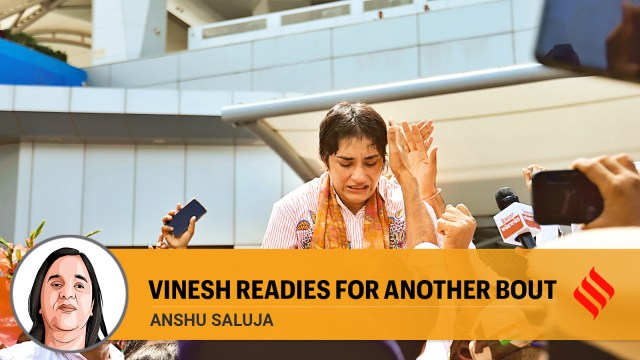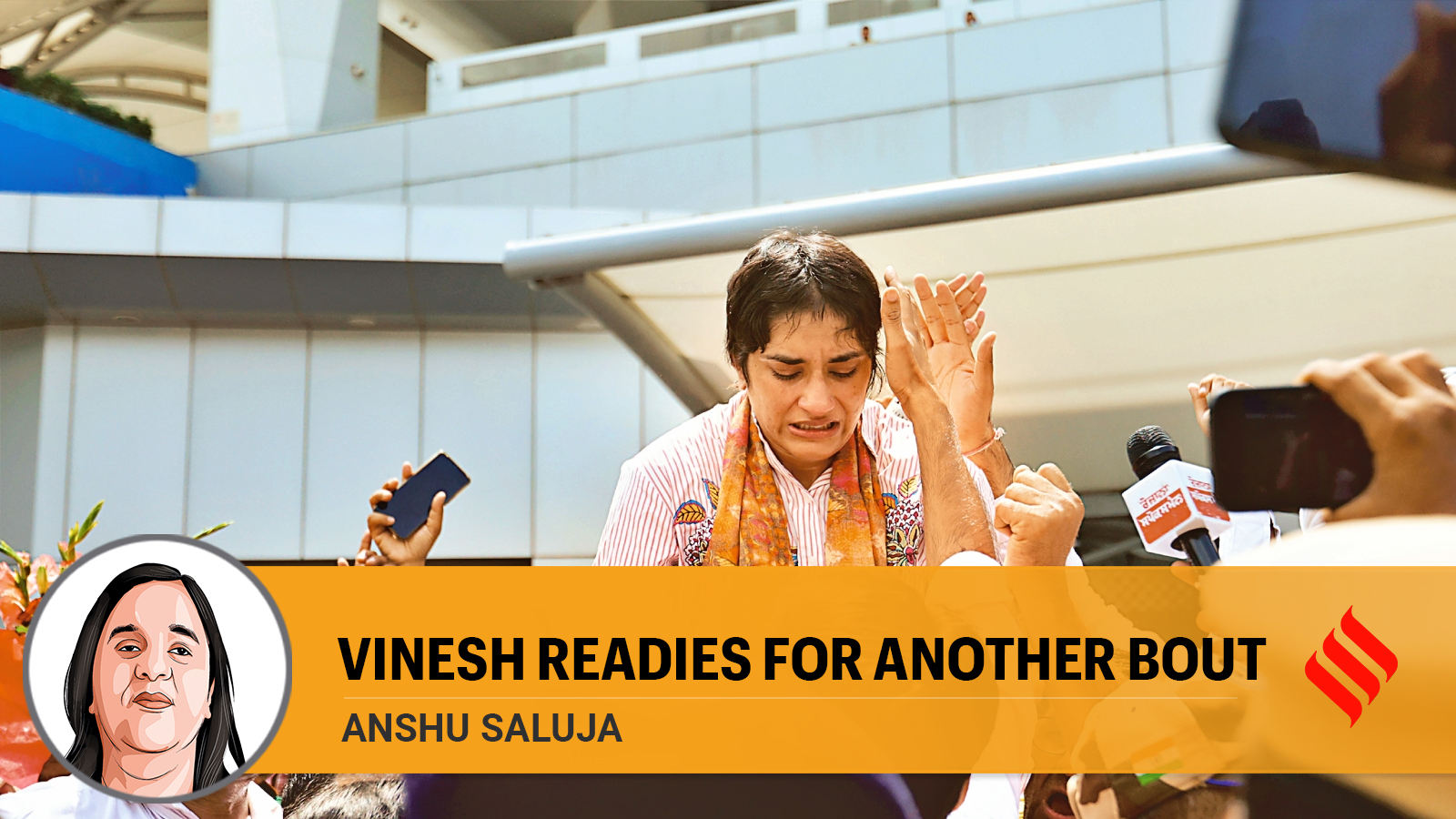
From the protest site at Delhi’s Jantar Mantar to the Paris Olympics, from the nail-biting quarter-final and semi-final matches to looking forlorn in a hospital bed, from the wrestling ring to the electoral ring — life has indeed turned into an unpredictable roller-coaster ride for wrestler Vinesh Phogat.
Not long ago, the 30-year-old was defamed, called names and written off. When she questioned the stranglehold of power in her sport, particularly women athletes being preyed on, she was hounded, and dragged through the mud, both literally and figuratively. But she rose above it all, thanks to her determination and resilience, and what a spectacular rise it was.
Though her indefatigable spirit and efforts were not rewarded at the Paris Olympics, should we have cheered and lauded her any less? When she returned home, weary and disheartened, she was once again confronted with a toxic mix of derision, contempt and misogyny — an ugly game of subversion and displacement of responsibility that played out at multiple levels. Once again, and a little too hastily, attempts were made to discredit and dismiss Vinesh.
In 2023 too, when she and other wrestling stars protested in the open and fearlessly spoke truth to power to clean the rot in the sport, the response was a brute mix of apathy and hostility. The protest had to be crushed by all means, including the use of force. To this end, she and other defiant wrestlers were battered, shunned and dismissed. Still, Vinesh stood her ground. Systematic attempts were made to project her as an irresponsible and self-consumed athlete who was ungrateful for the facilities being showered upon her. For her discomforting questions and stiff resistance, she was accused of discrediting her sport — even the nation.
However, Vinesh tore into all these attempts with her steely resolve and force of will. She claimed her nation back for herself, and claimed it with a fervour and ferocity. She has truly lived up to the Olympic motto — Citius, Altius, Fortius — Communiter (Faster, Higher, Stronger — Together) — where she fought so fearlessly. The exceptional endurance she displayed in successive bouts on that fateful day at the Olympics was inspiring for an entire generation. We stood humbled by her courage in facing the overwhelming odds stacked up against her. She swam against the tide and defied it to surge across the ocean, unimpeded and unbound. Her journey will, without doubt, encourage many others to resist oppression at the hands of the resourceful and powerful.
Now, Vinesh has entered a new arena — electoral politics. Unlike sports, where persistence, regular training and hard work are highly likely to pay, electoral politics is a circuitous struggle without defined principles or practices. In this contest, there are hardly any set rules to play by and two plus two rarely, if ever, adds up to four. There is no assured recipe for electoral success. It depends on a mishmash of complex factors like the party’s ideological and organisational strategies, its appeal among the voters, the candidate’s image, identity, social relations, available finances and many others.
Vinesh is set to contest from Haryana’s Julana Assembly seat. Whether she will win or not, remains to be seen. What certainly seems promising is that she will, to quote her, “win the battle of life” (The Indian Express, September 6, 2024), on the strength of her indomitable spirit.
Her relentless struggle teaches us a valuable lesson. Voices sought to be muted and marginalised for going against the grain and “discrediting” the nation — feminist and queer collectives, environment protection activists, human rights advocates, scholars, journalists and other dissenting groups — should, in fact, be allowed in the spirit of democratic values and inclusivity. Through their language of protest, defiance and dissent, they often strive to craft a more inclusive and representative nation. Thus, they expand hopes and claims for a just, equitable and dignified existence for all.
Anshu Saluja is an assistant professor of History at Azim Premji University, Bhopal. The views expressed are personal.



